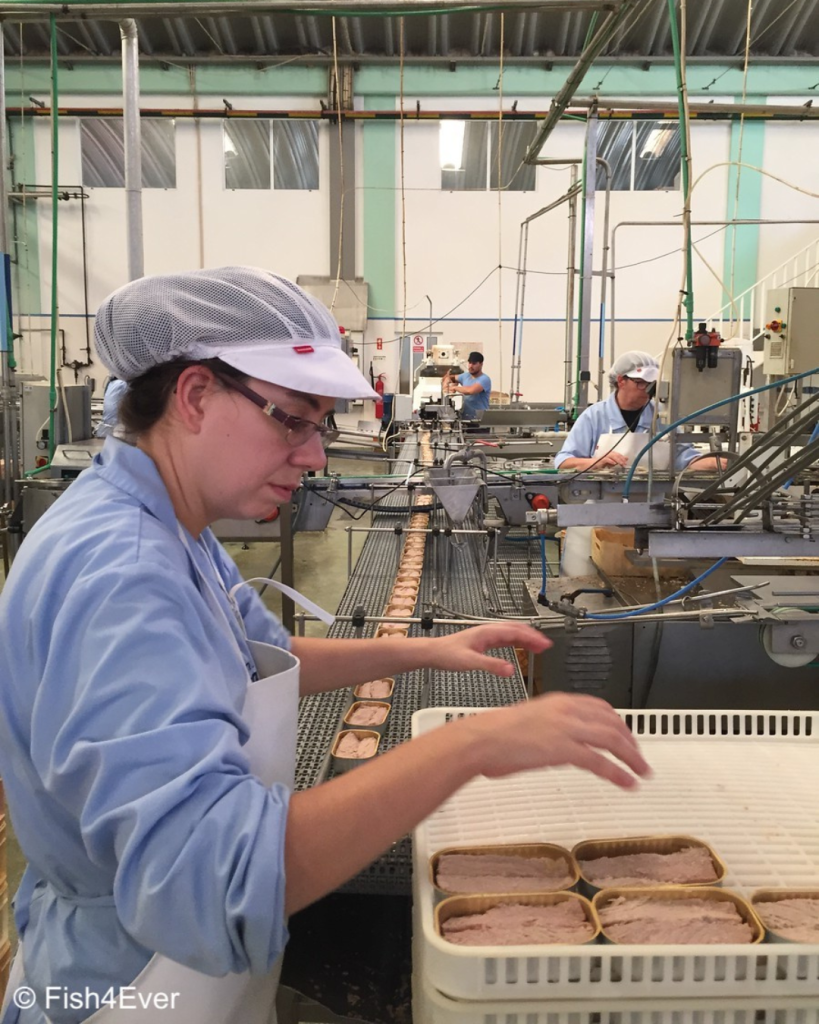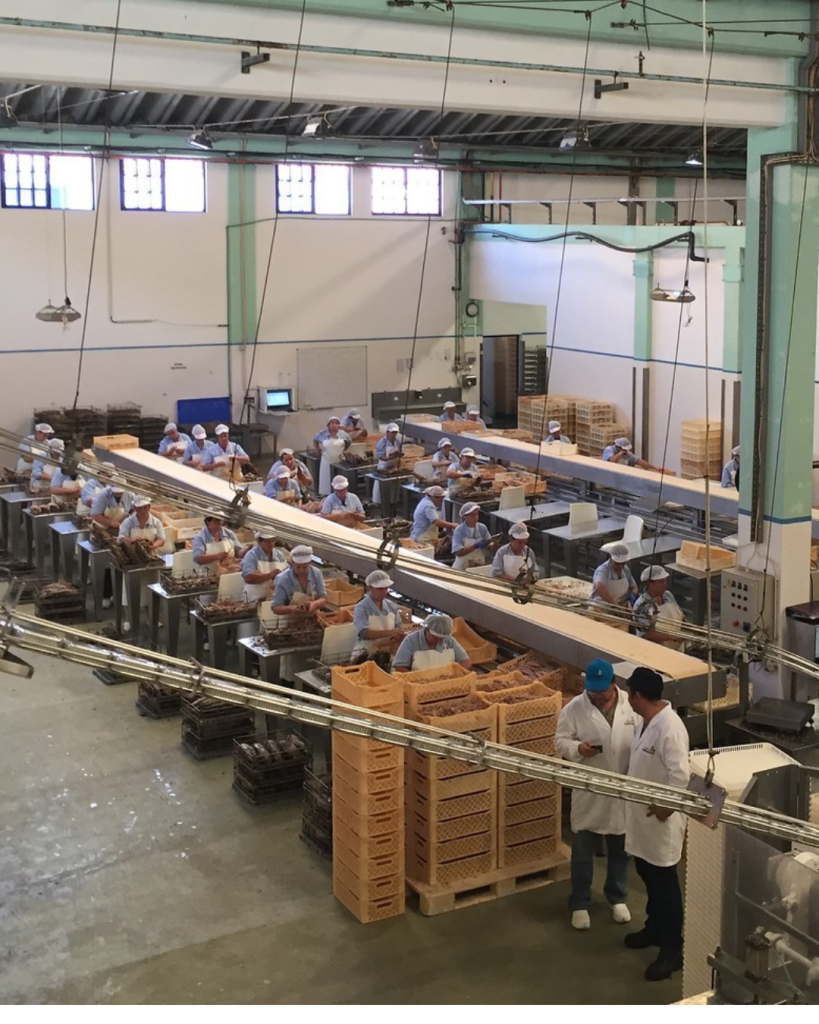The global trend towards the exploitation of tuna by large commercial fleets is countered in the Azores by a commitment to quality over quantity. Tuna are caught locally in the Azorean sea, using environmentally sustainable pole-and-line fishing methods. This method of fishing uses one hook, one line, catching one fish at a time, eliciting extremely low levels of bycatch. This tuna is then processed locally in Santa Catarina’s factory in Sao Jorge, acting as a key source of employment on the island. – Santa Catarina, Company Sustainability
Content for this case study was researched and created by the International Pole and Line Foundation (IPNLF) and adapted to RISE with their collaboration. The case study was originally featured in “ACTIONING THE MONTEREY FRAMEWORK: Stories from Around the World.”
Disclaimer: This case study is intended to be used as an educational resource and does not indicate an independent evaluation or endorsement by FishWise.
Challenge
Women in the seafood sector are affected by issues such as unequal pay, gender discrimination and power imbalances. Due to the remote nature of islands in the Azores, these experiences can be compounded by a lack of diverse employment opportunities—to which women are also deemed to be at higher risk.

Strategy
The Santa Catarina tuna cannery on Sao Jorge island acts as an important example of how companies can best safeguard and support their female factory employees.
The target species for the Santa Catarina fishery are Skipjack and Albacore tuna. Vessels are 30 meters or less and wood-hulled or fiber reinforced plastic. Vessels operate with an average of 15 fishers per boat and use pole-and-line as their main gear.
In 2020 the Azores fishery attained Naturland certification, with the factory passing all associated social audit requirements. The Santa Catarina fishery aligns with the Monterey Framework for Social Responsibility by protecting human rights, dignity, and access to resources and ensuring equality and equitable opportunity to benefit.
Outcomes
- The 2020 audit found that all 139 factory workers were employed based on skill, and 83.7% of the workers were local women from Sao Jorge.
- It was determined that all employees are given consistent access to training opportunities and are afforded opportunities for promotion.
- The factory also provides free health checks for all employees, as well as annual health and safety training (including personal health).
- In an effort to help alleviate some of the financial costs associated with employment, the company arranges transport services to and from the factory for all employees regardless of where they live on the island, and lunch is also supplied by the company.
- Finally, Santa Catarina are committed to ensuring that; their workers are free to join unions, anti-discrimination codes are implemented, and equal pay for equal work is actuated at all levels of the factory.
Looking Forward
These actions all help lay the foundations for creating an environment where fundamental human rights are respected, labor rights are protected, and decent working conditions are sustained for Santa Catarina factory workers, including vulnerable and at-risk groups.

